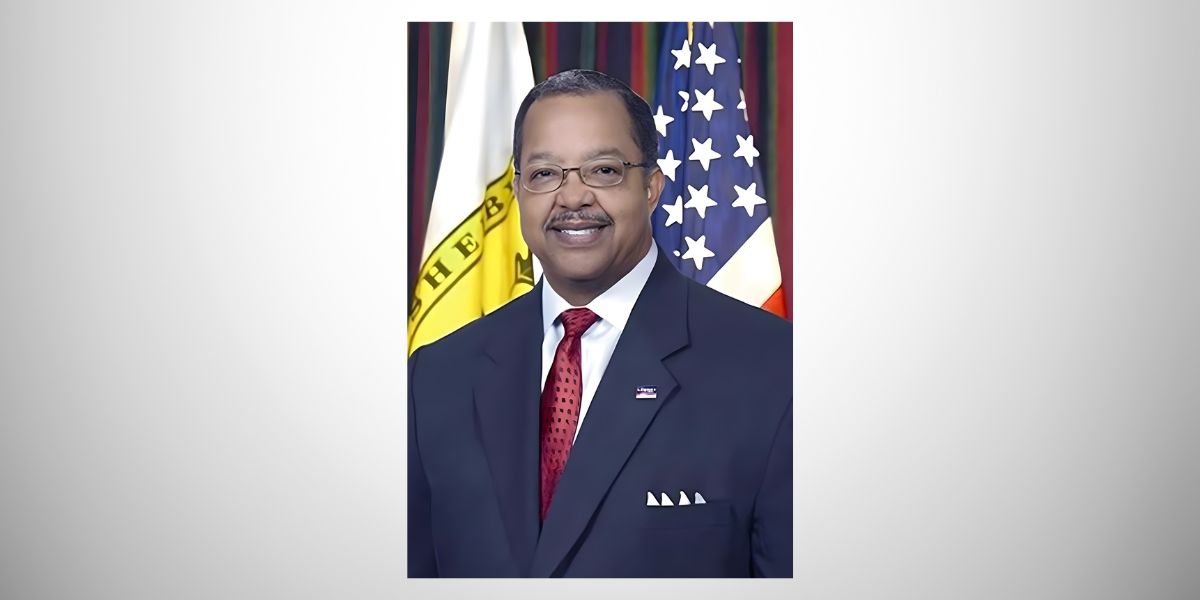By: Lennard James
Most Memphians think they know the story of former Councilman Myron Lowery. They remember his long service on the Memphis City Council and his steady hand as interim mayor during a moment of transition. But those chapters only tell part of a larger arc. To honor Myron Lowery fully, you have to return to the early 1970s, when he emerged as one of the city’s most determined young reporters, someone whose work ethic and courage helped shape Memphis media and, ultimately, his city.
In 1971, just three years after the assassination of Dr. Martin Luther King Jr., Lowery entered a Columbia University–sponsored journalism program that placed him as an intern at WMC-TV Channel 5. His first duties were humble: carrying equipment, shadowing senior reporters, and learning the mechanics of broadcast news from the back row. He refused to stay in the background. He studied the craft, asked hard questions, learned the gear, and volunteered for assignments others declined. By sheer persistence, he moved from intern to reporter, earning a reputation for speed, accuracy, and clean storytelling. Colleagues and managers took notice; by 1974, he was known inside the newsroom as one of the station’s most persistent journalists, the kind of reporter who didn’t miss facts and didn’t miss deadlines.
Even as his reporting flourished, opportunity remained difficult to secure. Management hesitated to place a Black journalist in the anchor chair, a hesitation that reflected broader barriers across television news in the region. Lowery chose not to wait for permission. He produced a deeply reported documentary on the closing of the only Black hospital in Mound Bayou, Mississippi—a shutdown triggered by federal funding cuts. He reported, filmed, edited, and delivered a finished piece that combined technical excellence with human detail. It could have been his breakthrough. Instead, he watched newer arrivals ascend to anchor roles while he remained on the reporting beat, his talent clear but his path blocked.
In 1981, he made a decision that would define his legacy beyond journalism. He filed a racial discrimination lawsuit against WMC. At the time, speaking out carried real risks, both professionally and personally. Memphis was still grappling with the trauma of 1968; challenging entrenched systems was not for the timid. Lowery pressed forward, and the case, after years of effort, ended in his favor. The impact reverberated across the industry. Stations began hiring Black anchors in increasing numbers, not merely to avoid litigation but because the precedent and the public conversation had shifted. The change continued into the 1990s and 2000s as Black journalists rose into leadership roles in newsrooms, and today anchors such as Markova Reed and Stephanie Scurlock carry that legacy forward. The cost for Lowery was significant: his own future in the anchor chair was effectively closed, his name whispered as a “troublemaker” in some quarters. Yet his stand opened doors for the next generation and permanently altered the landscape of local television news.
Denied the prize he had earned, Lowery turned toward public service with the same discipline that had defined his reporting. He won a seat on the Memphis City Council and served for decades with steadiness and visibility, becoming one of the city’s most familiar leaders. In 2009, during a turbulent moment, he stepped in as interim Mayor of Memphis, guiding the city through transition with professionalism and calm. He focused on responsibility over spectacle, process over headlines, and the work of governance over the theater of politics. Constituents came to view him not only as a vote or a voice, but as a presence—a dependable public servant whose first instinct was to serve.

There was another side to the man who shaped policy and challenged systems. To his family and friends, Myron Lowery was a devoted, steady, and loving husband and father who kept his commitments at home with the same seriousness he brought to the newsroom and the council chamber. He believed in preparation, in showing up, and in doing the right thing even when it cost you. He modeled that ethic privately and publicly, setting a standard his children and grandchildren could see and measure. At his memorial, his son, Mickell Lowery, spoke of that centering belief and example, recalling that his father always believed life was good—and carried himself as a positive role model, holding himself to the very standard he hoped to inspire in others. It wasn’t just something he said; it was something he practiced, day after day, assignment after assignment, vote after vote.
The story of Myron Lowery is not neat or easily packaged. It includes triumphs and tradeoffs, accolades and consequences. His lawsuit changed the trajectory of Memphis broadcasting, even as it limited his own advancement inside that world. His council service steadied the city through change, even as the daily grind of municipal leadership rarely yields the kind of glory a television career might bring. He chose substance over spotlight, systems over sound bites. And in choosing that path, he left Memphis with a model of leadership that will likely outlast any single newscast or election cycle.
Every time a Black anchor delivers the evening news in Memphis, the trail he cleared is part of the story. Every time a young journalist of color arrives in a newsroom and is judged on their work rather than their willingness to be quiet, his stand can still be heard. And every time a public official chooses duty over drama, there is a little of his example in that choice, too. His life reminds us that change can come from a lawsuit filed in courage and also from the quiet, daily work of governance; from a documentary shot on borrowed gear and also from the steady, unglamorous votes that keep a city moving.
Myron Lowery was more than a politician, more than a councilman, and more than an interim mayor. He was a pioneer of Memphis Black history, a reporter who would not accept a closed door, a public servant who guided his city with restraint and resolve, and a family man who believed that life was good and lived accordingly. His legacy is not only etched into the record of lawsuits won or offices held; it is alive in the people he inspired, the opportunities he made possible, and the standard he set for what service—true service—can look like. For future generations, that is the measure that will endure.









